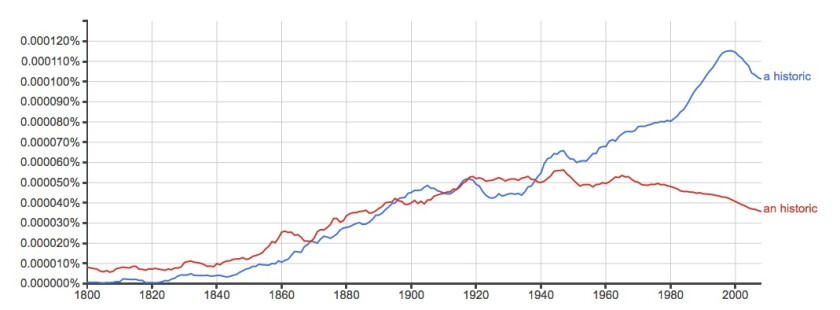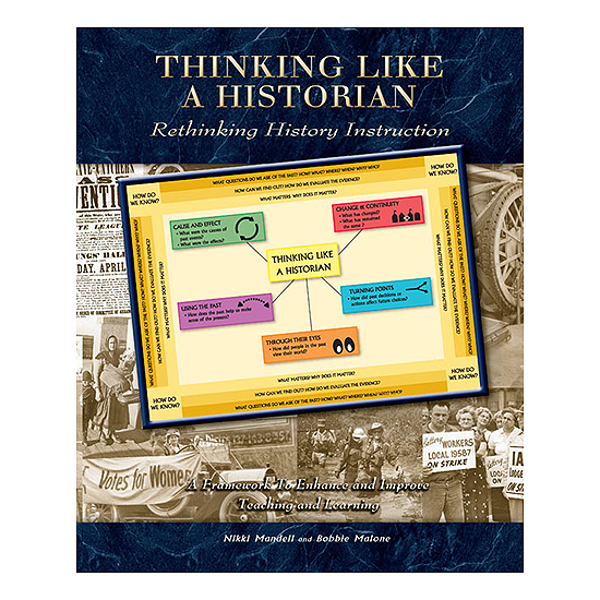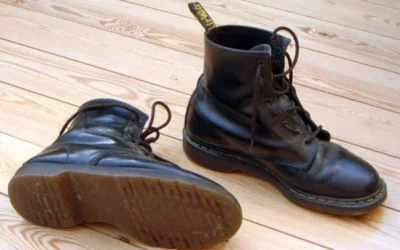This past weekend I was preparing for a talk I’ll be giving next month in Washington, D.C. At some moment I decided to check the description of the seminar online to make sure that I would be talking about what I said I would be talking about several months ago. (I have learned not to trust my memory on this!)
In the middle of reading the description, I thought, “I didn’t write that sentence that way.” Now, if I wasn’t sure I could remember what I said I would be talking about, how could I be so sure I hadn’t worded a specific sentence in a particular way? Elementary, my dear Watson.
Here’s how the sentence begins:
From her perspective as an historian of the English language, Curzan….
I do not believe in the phrasing “an historian.” If you are a speaker who drops the initial /h/ sound in the word historian, then you should say and write “an historian.” If you, like me, pronounce the initial /h/ in historian, then, following the general pattern in English for a/an (a before a consonant, an before a vowel), it should be “a historian.” Same for historical.
I went back to check the description I sent, and sure enough: I had written “a historian.” I then found my edits to the edited copy the organizers sent me before they put the description online. In the Anne-edited edited copy, I accepted many useful changes they had made to the description, and I rejected one edit. The copy I returned contains: “an historian.”
The editor had clearly rejected my rejection of the edit.
I understand that there is prestige associated with “an historian” and “an historical event.” I hear and read it all over the academy.
But I think it’s worth noting that many style guides are with me on this one. Henry Watson Fowler, in A Dictionary of Modern English Usage (1926), notes that “h” is now usually pronounced in words like historical—words that start with an unaccented syllable that begins with “h”—and he writes: “now that the h in such words is pronounced the distinction has become pedantic, & a historical should be said & written.”
The Associated Press Stylebook and the Chicago Manual of Style both recommend “a historic(al).”
The site Grammarist calls “an historic” “an unnecessary affectation.” Maeve Maddox, on Daily Writing Tips, quotes comments on her post about this topic, where there is a lot of vitriol, including this comment: “When people use ‘an historical’ on NPR, it’s because [they’re] snooty.”
That judgment seems too strong. I think many people are just trying to be correct, or perhaps even hyper correct, and they have heard or read “an historic(al)” in formal contexts. These folks are not wrong that “an historic(al)” lingers as a prestige form.
If you’re persuaded by frequency, though, “a historic” wins, as the chart below from the Google Books Ngram Viewer shows.

The phrasing “a historian” is now more common too — and I have another Ngram Viewer chart to prove it.

In the end, I am not going to claim that “a historian” is the only way to go — although I do think it is more aesthetically pleasing given the way it follows the general pattern for a/an. But from my perspective as a historian of the English language, I am going to argue that the editor could have let me win this one.
This blog was originally posted on The Chronicle




